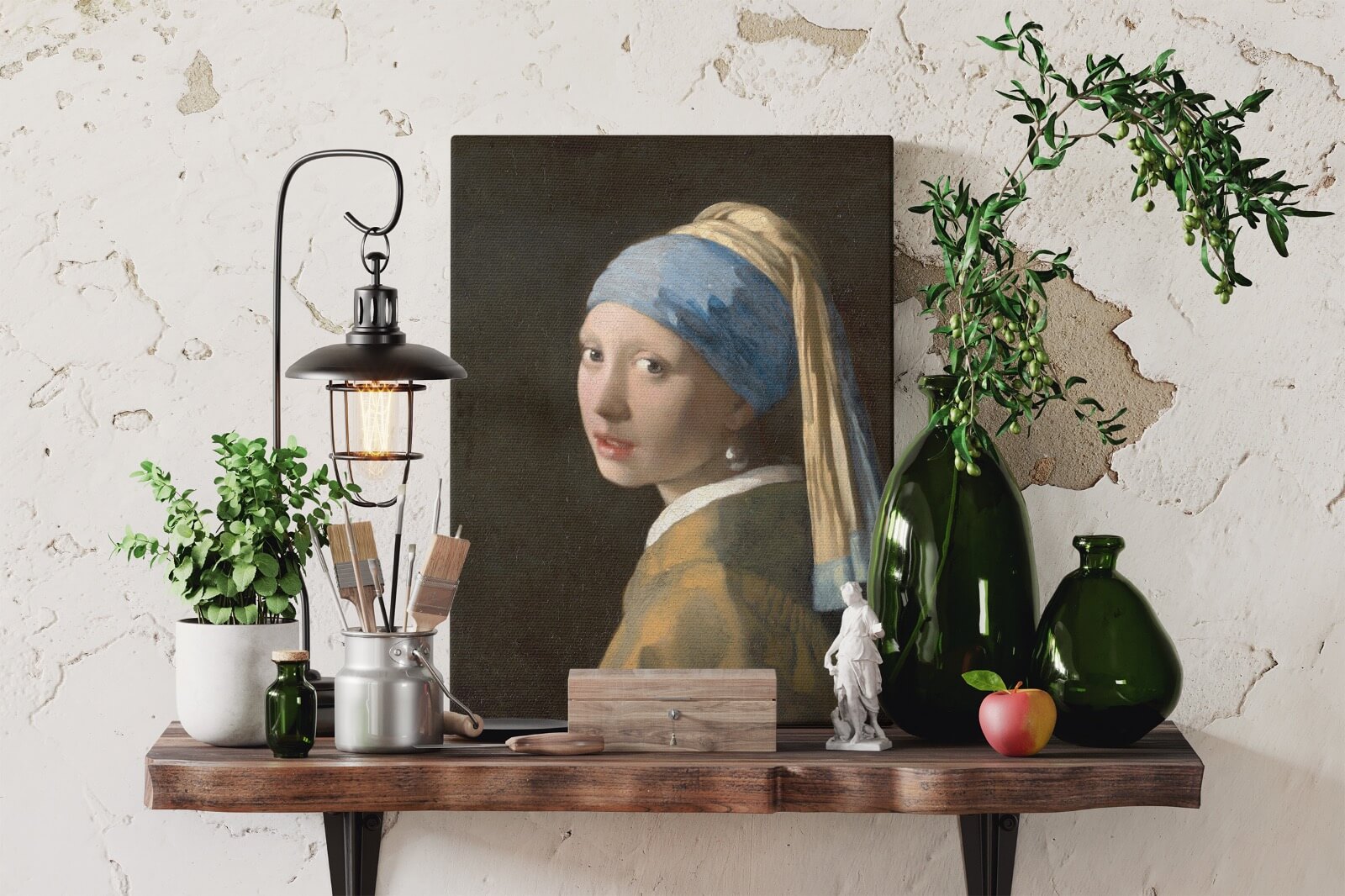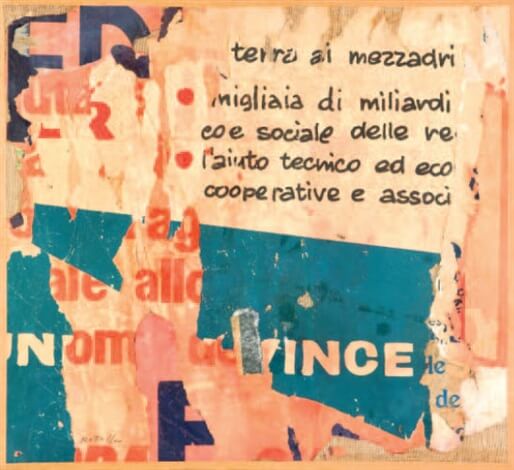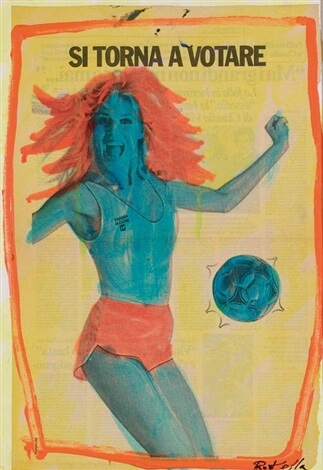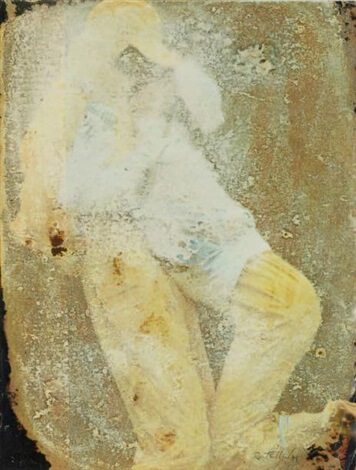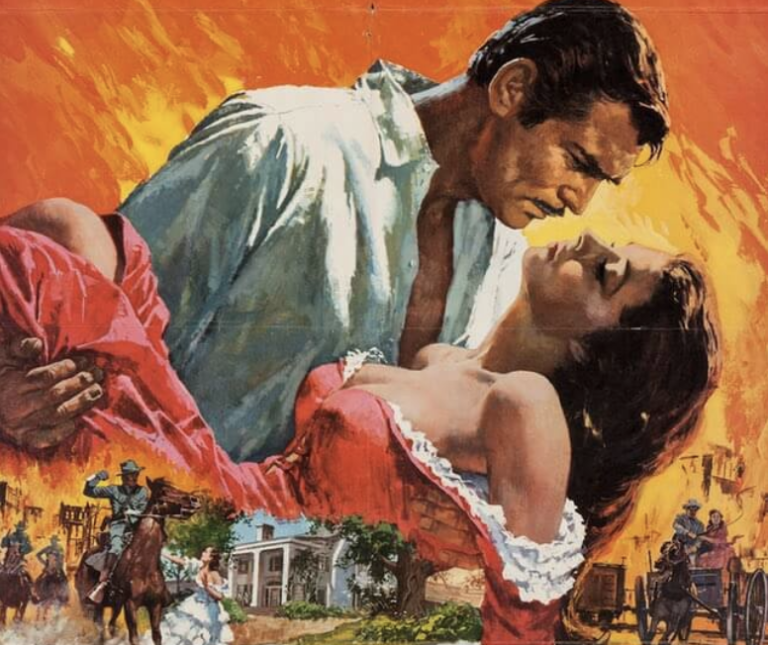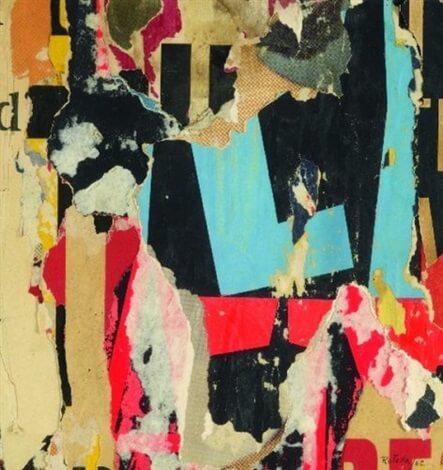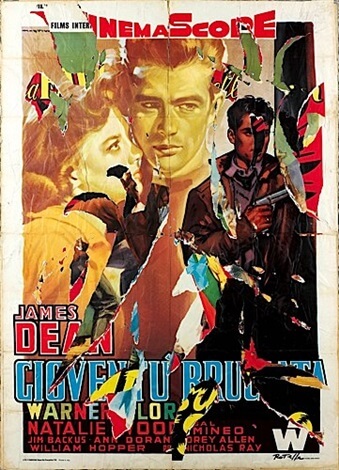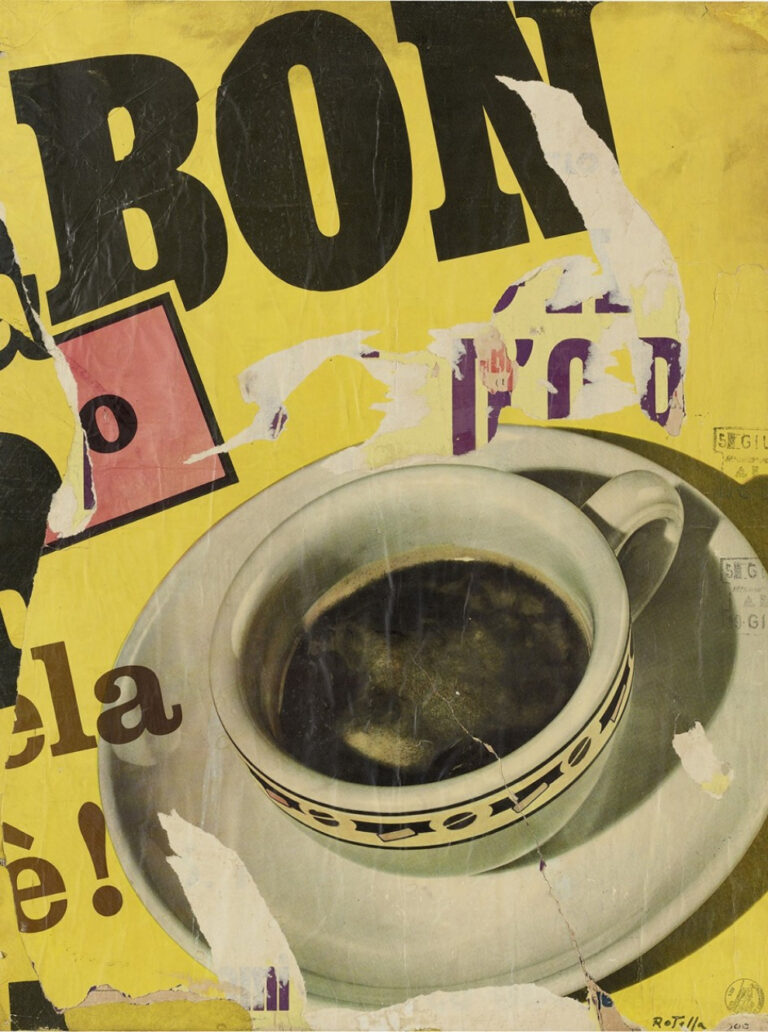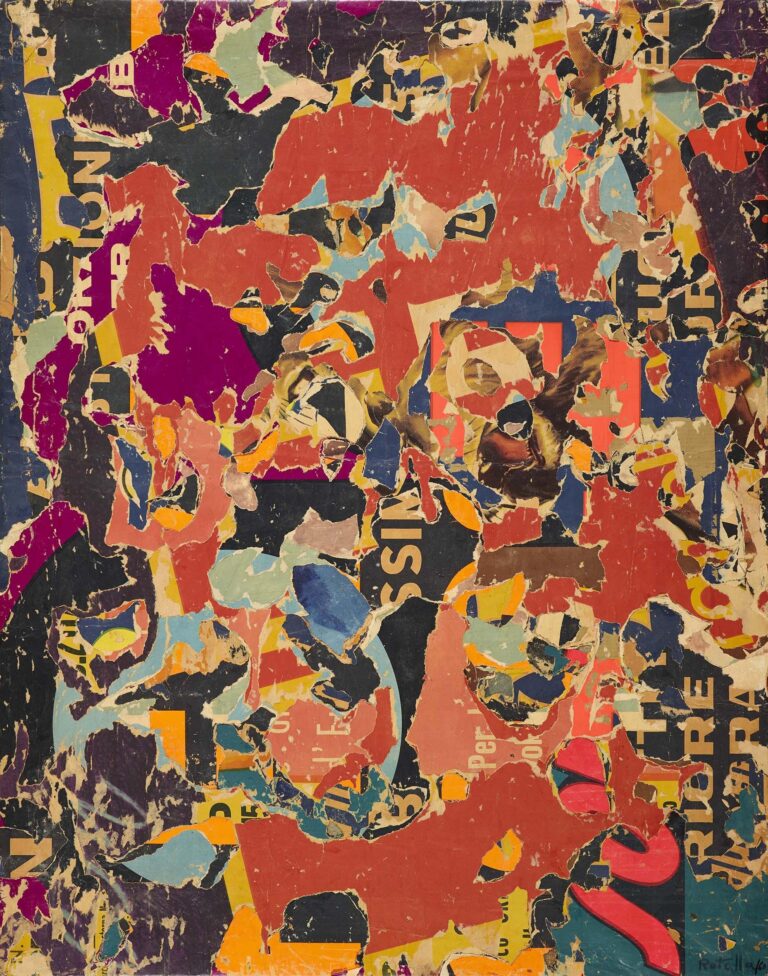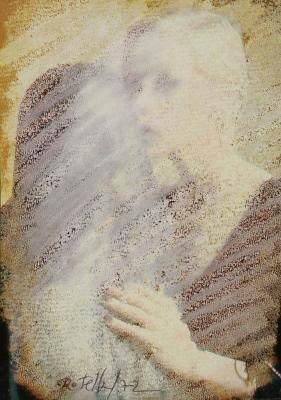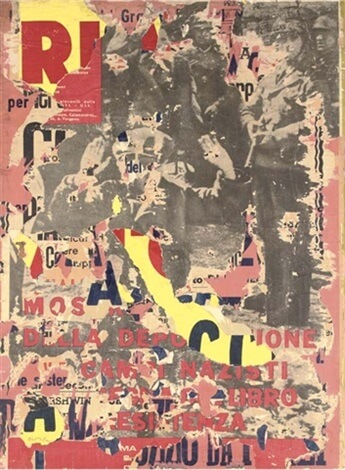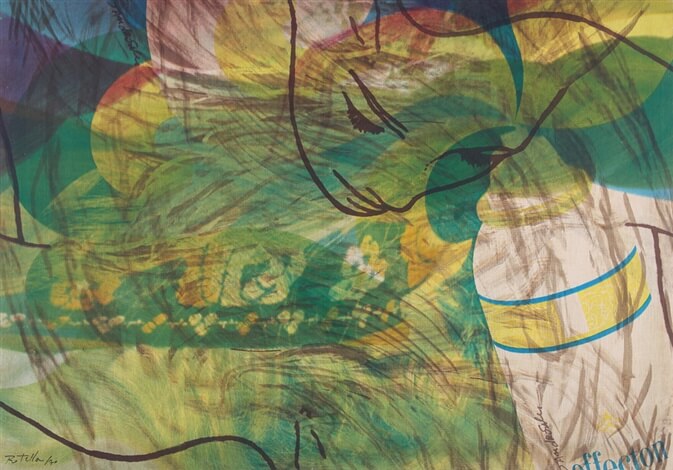Mimmo Rotella
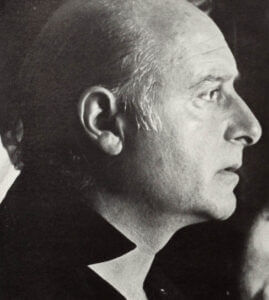
Mimmo Rotella (1918–2006) was an influential Italian artist renowned for his innovative approach to collage and decollage, a technique of tearing away parts of existing images to create new ones. He was a seminal figure in the post-war European avant-garde and became known for his groundbreaking contributions to the Nouveau Réalisme movement.
Born Domenico Rotella in Catanzaro, Italy, on October 7, 1918, Rotella exhibited an affinity for the arts from an early age. He moved to Naples in 1933 to study art, then later attended the Academy of Fine Arts. During World War II, he served in the Italian army, and this tumultuous period deeply affected his perspective on life and art.
In the late 1940s, he moved to Rome where he was initially associated with the geometric abstract art movement. However, after winning a Fulbright scholarship in 1951, Rotella relocated to the United States, where his exposure to American pop culture and the urban environment of New York City had a profound impact on his work.
In the mid-1950s, Rotella developed his signature decollage technique, where he would rip posters off the walls of Rome, alter them, and then present them as artworks. This revolutionary technique made him a key figure in the Nouveau Réalisme movement in France, which sought to incorporate elements of everyday life into art.
His artworks serve as social commentaries that explore themes of consumer culture, advertising, and mass media. Famous works include “L’Uomo Del Mondo” (Man of the World) and “La Dolce Vita.” His creativity did not limit itself to decollage, as he also ventured into sound art, photography, and even sculpture.
Mimmo Rotella passed away on January 8, 2006, in Milan, but his influence continues to be felt in contemporary art today. His works are held in prestigious collections worldwide, including the Museum of Modern Art in New York, the Tate Modern in London, and the Centre Pompidou in Paris. He remains an icon of modern art, remembered for his audacity and his ability to turn the mundane into the extraordinary.
